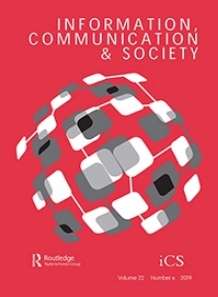Podcast | Co-authors Benjamin Piper and Sarah Dryden-Peterson discuss the factors that influence early grade reading and suggest that focusing on education quality is important for improving literacy outcomes.
Read MoreResearch | UNESCO background paper co-authored by Refugee REACH co-founder Vidur Chopra & Helen Haste, arguing that developing the capacities to manage ambiguity and change are critical to enabling membership and participation within societies in the future.
Read MoreResearch | In the first literacy census in a refugee camp, researchers assessed all the schools providing lower primary education to refugee children in Kakuma, Kenya.
Read MoreInterview | Dr. Alebachew Kemisso tells REACH about what drew him to the field of refugee education, and the challenges and opportunities of bridging research, policy, and action related to the education of refugees in Ethiopia.
Read MoreResearch | This editorial note introduces the second part of the Journal on Education in Emergencies special issue on refugees and education, featuring articles that focus on opportunities and outcomes in refugee education as they connect to rights, funding actors, literacy, belonging, and teacher development.
Read MoreResearch | This editorial note introduces the Journal on Education in Emergencies special issue on refugees and education. The first of two parts, it showcases research on important developments across several regions and central themes within the field of refugee education today.
Read MoreInterview | A conversation with Jusoor’s academic director Suha Tutunji about how she uses research to inform her work, what makes a good research collaborator, and what keeps her going.
Read MoreResearch | Article by Sarah Dryden-Peterson and Celia Reddick exploring diaspora-led education development work in conflict-affected settings.
Read MoreResearch | This article finds that peer-to-peer group chats expand transnational learning opportunities and possibilities for instructional innovations, community engagement, and conversations about gender equity in refugee education.
Read MoreResearch | This article considers the ways in which education policy and practice in Botswana negotiate tensions between assimilationist and multiculturalist approaches to ethnic diversity.
Read MoreResearch | This article probes a question at the core of comparative education—how to realize the right to education for all and ensure opportunities to use that education for future participation in society.
Read MoreInterview | Sarah Dryden-Peterson describes processes of developing relationships between immigrant and long-time resident youth, and the ways that schools can promote personal interaction, cooperative action, and collective identification to create welcoming communities.
Read MoreResearch | This study identifies pathways to educational success for refugees. It examines the nature and content of supports that students identify as important.
Read MoreResearch | This article examines how education can disrupt threats of conflict, specifically in the presence of ethnic diversity, by presenting a historical analysis of Botswana.
Read MoreResearch | In this book chapter, Sarah Dryden-Peterson exposes the tensions that exist in a model of including refugees in national education systems, and the precarious situations that it can create in schools and classrooms.
Read More













